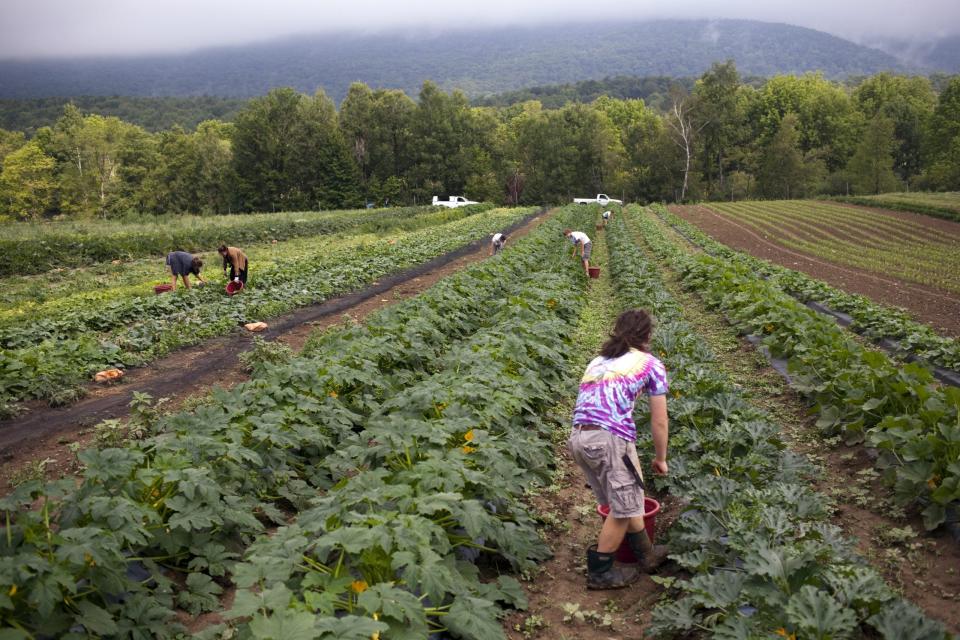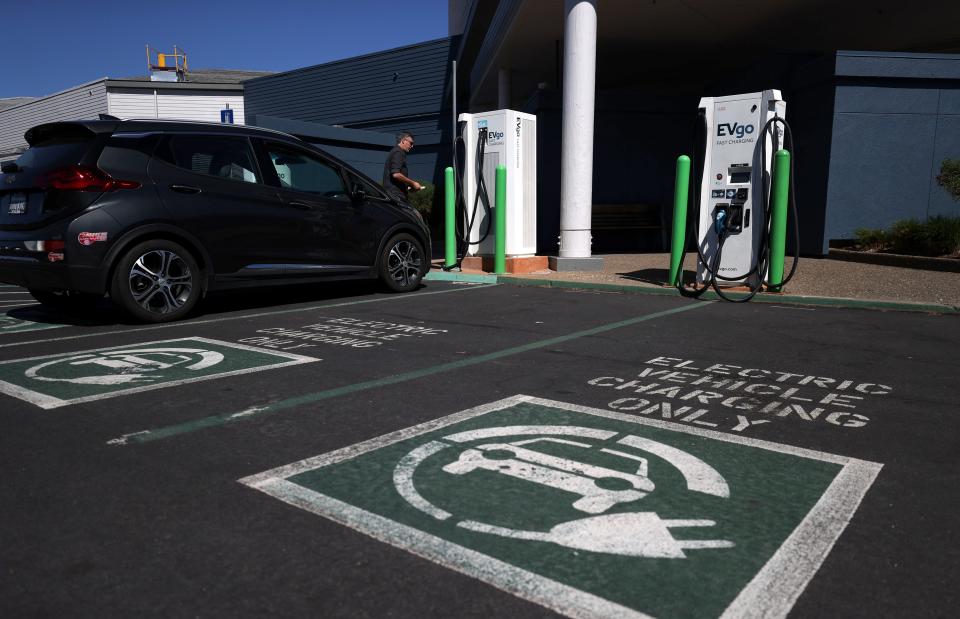Which states are the greenest? Report ranks most eco-friendly places in US
California overtook Vermont to earn the "Greenest State in America" title despite the Golden State leading the nation for the worst air quality.
WalletHub crunched the numbers and calculated the greenest or most eco-friendly states, ranking them from first to 50th. California moved up two spots to take number one, while New York and Vermont fell a place each.
West Virginia took the least green title, followed by Louisiana. The bottom 10 spots stayed largely unchanged except for Indiana, which fell eight places to finish in 42nd place.

MANY OF THESE CITIES HAVE A COMMON WEATHER THREAD FOR ATTRACTING NEW MILLIONAIRES
No state consistently scored in the top or bottom across all individual rankings. For example, the greenest state, California, tied for top honors for water quality but tied for last for air quality. The American Council for an Energy Efficient Economy lists the Golden State as having the most energy-efficient public policies, though.
"California also has the fourth-lowest overall energy consumption per capita, and the sixth-lowest gasoline consumption," the report from Wallet Hub said. "Plus, California makes it easy for people to transition from gas-powered cars to eco-friendly vehicles because it has the second-largest number of alternative-fuel stations per capita. The state’s robust public transportation helps reduce gas consumption, too."

TOP PLACES TO RETIRE JUST MIGHT SURPRISE YOU AS SNOWY WINTERS REMAIN A COMMON THEME
Vermont, in second place, took top honors for the most organic farms per capita and the highest number of alternative fuel stations per capita. But it lags in the 19th spot for alternative fuel vehicles per capita.
The lowest carbon dioxide and third-lowest methane emissions per capita titles boosted the eco-friendly total ranking.
The home of the biggest city in the nation hardly seems like a good candidate for the third-greenest state, but much of the huge urban population doesn't drive. New York leads the nation in green transportation. About 48% of the population take public transit, walk, carpool or bike to and from work. That put the state in the third position for lowest gas consumption per capita.
AMERICA'S HAPPIEST CITIES RANKED: HOW MUCH DOES WEATHER FACTOR IN?

The single most effective strategy (to make communities more environmentally friendly) is higher population density," WalletHub expert Jan Kleissl, director for the Center for Energy Research, said in a statement. "This translates to more people living in condos or apartments versus single-family homes."
"Denser living reduces transportation distances and increases urban walkability," he continued. "Multi-family units also reduce community energy use per capita because everyone's AC has to balance heat coming through 1 or 2 outside walls rather than 4 walls and a roof and floor of a house. Urban rezoning strategies are needed to permit higher-density construction."
The Empire State also tied for fifth for best soil quality (the first four spots were a tie for number one). It also scored well for low carbon dioxide, methane and nitrous oxide emissions per capita.
Here's a closer look at some of the metrics used in Wallet Hub's rankings.
Environmental health, including air, water and soil quality, along with energy efficiency, made up the environmental quality score and was the highest-weighted single factor for the total score.
Average gasoline use per capita, commute time, alternative fuel vehicles and charging stations per capita, and percentage of the population walking or taking public transportation or work from home all go into the eco-friendly behaviors score. The number of green buildings per capita (LEED-Certified), home solar systems, the share of renewable energy consumption and the corporate clean energy procurement index (how easy companies can use renewable energy) also went into behaviors.

Water usage per capita, water efficiency, recycling programs and policies and organic farms per capita rounded out the behaviors score. Compared to each environmental health factor, each factor only made up a quarter of the total score.
The climate change contribution score was composed of carbon dioxide, methane, nitrous oxide and fluorinated greenhouse gas emissions per capita. Each greenhouse gas emission score was weighted slightly less than each environmental health score for the total score.

Many of the WalletHub experts point to government policies as the answer to greening up a state.
"I can say if the policies can help to more adoption of clean technologies in power generation, industrial production, transportation, and agriculture, that would be a meaningful contribution," stated WalletHub expert and associate professor at the University of California, Los Angeles, Deepak Rajagopal.
Experts also agree that each person needs to make greener decisions about consumption. One expert said it is also time for businesses to adopt a new attitude about the environment.
"Environmentally sustainable practices actually reduce waste and energy consumption while achieving a higher efficiency standard," said expert and Bryant University professor Gaytha Langlois. "These are the same goals of successful business practices, so it would seem logical to conclude that the goals are not incompatible. Economic growth is dependent on sufficient resources being available in a sustainable manner (i.e., one cannot afford to be wasteful, inefficient, or to create pollution that will then be costly to mitigate). It seems to me that we should retire the duality of environmental quality being opposite to economic success. It is time for a new mantra."
Original article source: Which states are the greenest? Report ranks most eco-friendly places in US

